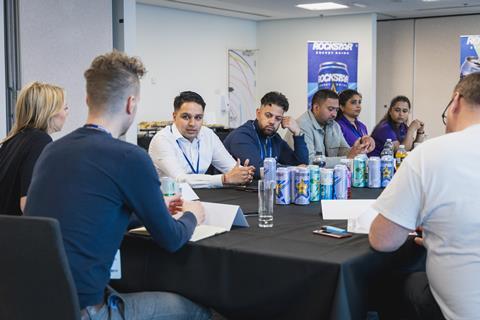
The importance of collaboration between FMCG suppliers and independent retailers was highlighted at a recent roundtable. Hosted by Convenience Store and Rockstar Energy, the roundtable brought together retailers from around the UK to discuss the energy drinks category as well as the issues impacting the sector.
One of the key topics raised by the panel of expert retailers was how suppliers such as Britvic can work with retailers for new launches and marketing activity to create disruption within the sector.
Daniell Nadeem said that brands need to step it up when it comes to working with retailers. “Activation is key, there’s no point having a rep come round selling you a couple of cases just to get the brand out there - there needs to be some element of activation or some sort of really strong promotional activity.
“Advertising on bus stops and buildings are great for customer awareness but direct customer engagement is what we need. We need our customers to know about these brands.”
He also warned that it’s vital that there’s a steady supply of the product to ensure that nobody is left disappointed. “Once you’ve activated a product, make sure that the route to market is solid, and that every supplier’s got enough coming through their supply chain to ensure that if this does become the next trending big hit product, there’s enough available.”
Bobby Singh praised FMCG brands for realising how important it is to work with independent retailers but urged retailers to be proactive as well. “There’s been a massive step forward from what my experience is with brands coming forward, working with PR companies, and they really recognise the influence of retailers.
“I do think retailers have to be proactive themselves as well and put themselves forward by using that brilliant rapport that we’ve all with our local community.”
The suggestion for working on NPD did come with the caveat that the margin for the retailer had to be right and that availability had to be in place to ensure that retailers can maintain consistency when offering the products to customers.
“Manufacturers need to know that we can no longer work on anything less than 30%, especially with overheads rising,” said Mike Sohal. “If I see a pricemarked pack with a 23-25% margin I tend to shy away from it as it’s not worth it.”
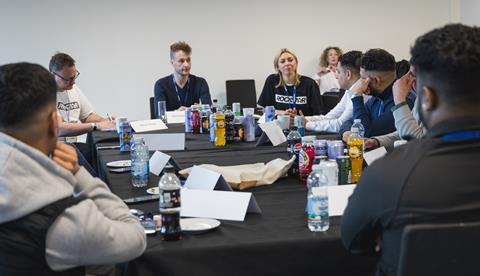
Mike warned that this is particularly important as competition intensifies in the sector. “As well as the margin issue, the other challenge is the competition - our share of the pie is getting smaller and smaller because the corporates are entering our market.
“If you look up and down the country, we’re seeing more competition from major multiples. We’re getting less and less stored opportunities going forward. and more and more competition.”
“Most retailers agree that brands should have some agreement with the wholesalers to safeguard our margins because costs are going up and we need protection on that,” said Bobby Singh.
Mike added that retailers are having to get tougher on margins as costs rise. “You’ve got consumers; retailers; wholesalers and the suppliers as links in a chain. If any one of them breaks, it’s the brand that suffers. From a retailer point of view, if the margin isn’t strong enough, I’ll say forget it and get a different product in. It’s a straightforward process for us - we don’t get bonuses, we’re independent retailers that work on margins and it’s as simple as that.
“Pricemark is quite important for us,” said Mike. “It all depends on the location of your store and the demographic, but I’m talking about my stores and it’s [PMPs] a key element because it’s that mindset of getting value for money.
“I’ve seen times when if you put something with a pricemark on it, and if you put non-pricemark which might even be cheaper next to it, the price mark will fly out.”
One retailer suggested that PMPs could be extended to wholesalers as well.
Mandeep Khela said: “I want to see more PMP on the actual wholesale case so that we know that the wholesalers aren’t eating into our margin. It’s no good us having to offer that price to our customers when we don’t actually know what cost is going to to our wholesalers.”
When attracting new shoppers, Bobby said social media was a key part of the mix. “For us social media is massive. We all used to watch TV and it cost millions to advertise on it. But in this day and age, we’ve got to get with all these platforms and you can just push it out there.”
Daniell said not to place too much importance on social media statistics but rather monitor if it’s actually helping sales grow. “We have a page with around 6,000 followers but on a post we may only get one like but what is very important in this day and age is being visible online. Everybody wants the 100,000 likes and they want the views but it’s not an everyday thing but it must translate into sales. I’ve significantly increased the weekly sales at my store and I’ve done that through social media.
“We would post five or six times a day and we’d get zero likes sometimes. But what it did was because we were constantly in front of the consumer’s face, it gets to a point where they go right I’m just gonna try this store.
“Social media is almost like a notice board for your customers. It’s just alerting them what’s going on, what’s new, what’s coming through, what’s on offer, what we have to offer. What Girish [Jeeva] does very well is talk about the products he has in store, but also letting customers know who to expect and who to greet when they come into the store. So he’s talking about his team when he’s talking about services.”
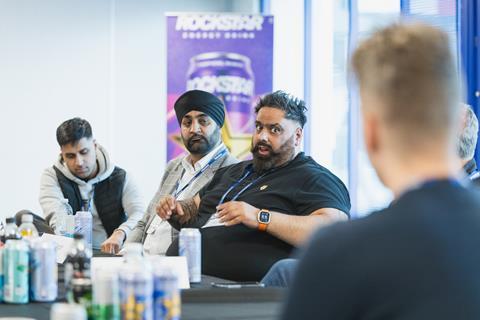
Bobby added that there needs to be KPIs around social media. “It’s key to put measurables in there so you can measure how much of an impact your socials have regarding your sales.”
The future of the category was also discussed in-depth by the Rockstar Energy team and the retailer panel.
Daniell said that retail in general needs to focus on younger customers, and that includes how they are marketed to. “I think we can all agree that the younger generation is our target market because they are the future. They are the ones that are going to be shopping with us in the future. And we should be trying to relate to them.”
Britvic’s Suzie Dixon explained that shopper habits mean that a lot of energy drinks are being bought by loyal shoppers and it’s necessary to grow that number. “What you certainly find is the shoppers who are buying energy drinks buy a lot. But the overall penetration of energy as a category is so low when you compare it versus other soft drinks categories.
We see the opportunity being how you reach a broader audience. How you tap into not your loyalists who are energy drinkers through and through but actually a wider demographic.”
Britvic’s Adrian Howe added that overcoming the sugar issue is a challenge for the energy category when attracting new shoppers. “We find that the number one barrier for entry into the category is the perception of sugar. So, by really advocating a no sugar stance that Rockstar is leaning into, we’re helping to bring more people into the category.
“The growth for existing energy drink shoppers is really limited because there’s only so much someone can buy before they’re saturated with energy drinks. So you have to get more people into the category.”
The importance of multipacks in energy were also highlighted, given the cost of living crisis and the return of the big night in.
The retailers also heard more details about Rockstar’s partnership with Live Nation. Through the partnership, 300 pairs of tickets to UK festivals will be given away to consumers. Retailers can access POS for the partnership and promotion via the Britvic At Your Convenience website.





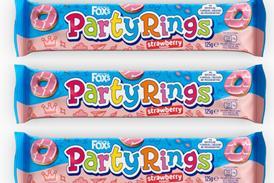
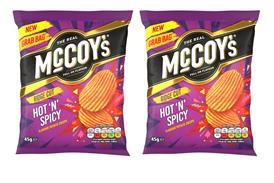
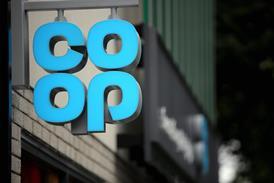

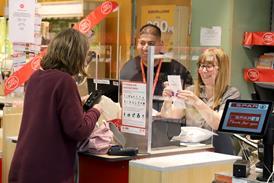

![WG-4003[58]](https://d2dyh47stel7w4.cloudfront.net/Pictures/274x183/4/5/1/353451_wg400358_6083.jpg)




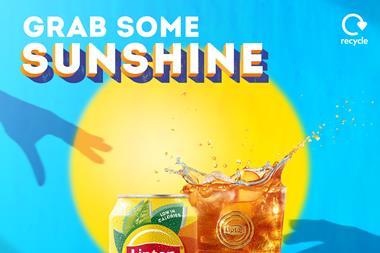

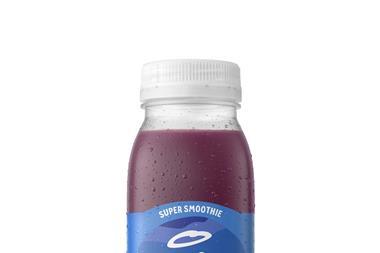

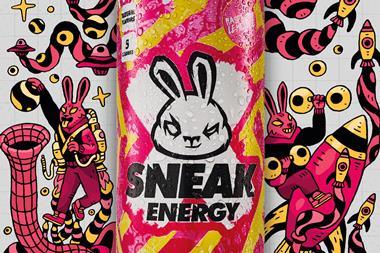


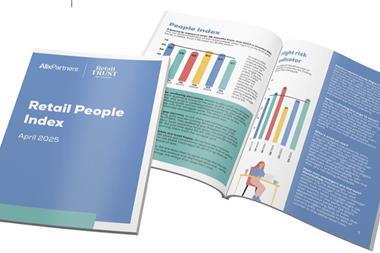
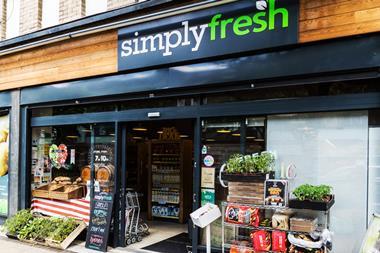
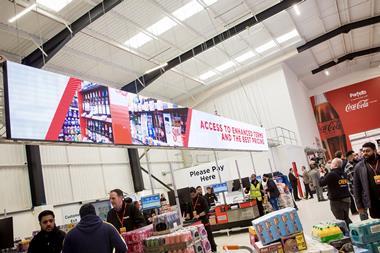
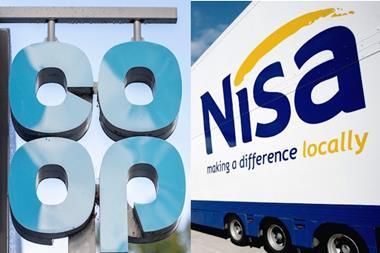

No comments yet